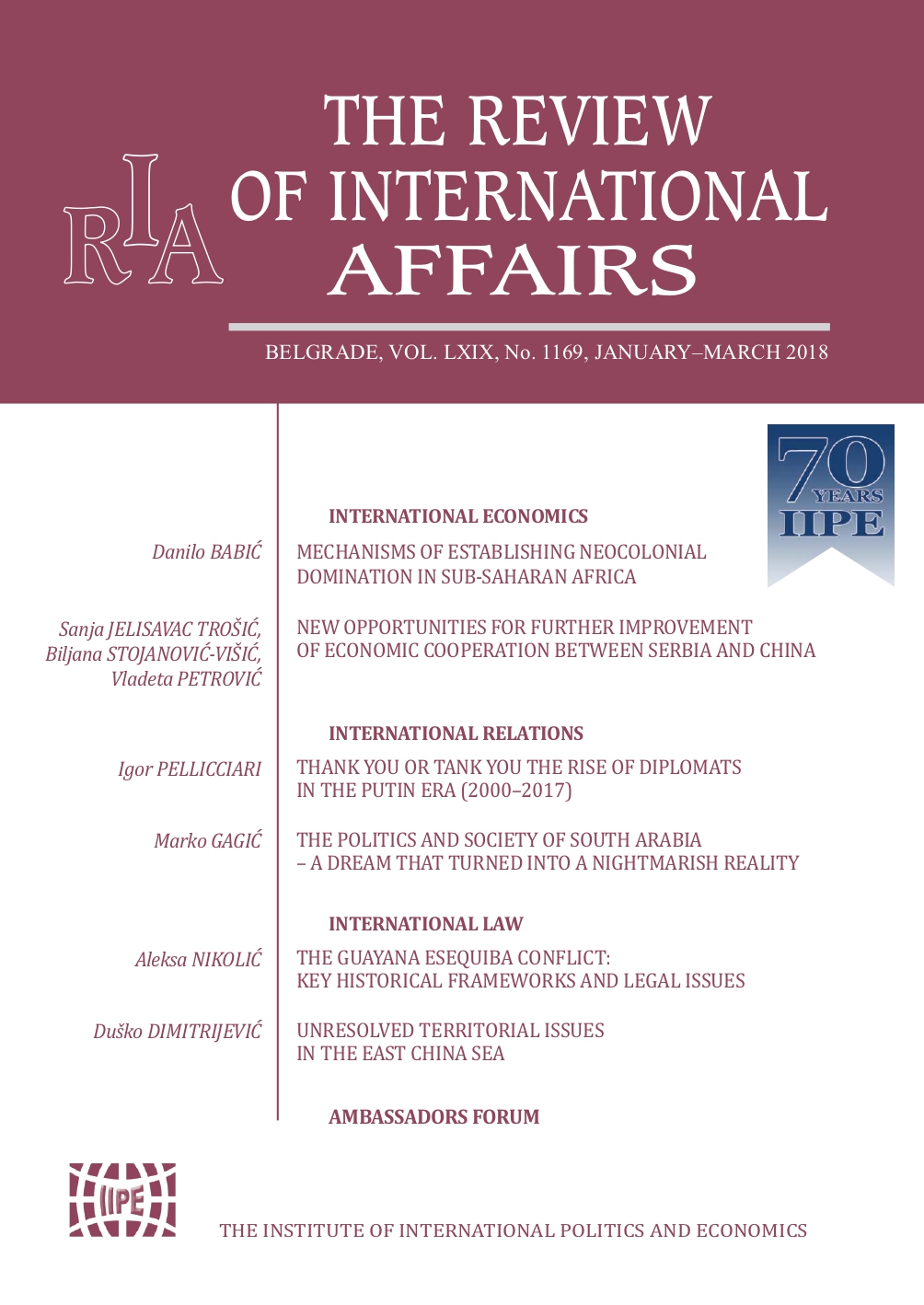Mechanisms of establishing neocolonial domination in Sub-Saharan Africa
Mechanisms of establishing neocolonial domination in Sub-Saharan Africa
Author(s): Danilo BabićSubject(s): Politics / Political Sciences
Published by: Институт за међународну политику и привреду
Keywords: Africa; colonialism; neo-colonialism; imperialism; aid; structural adjustment; World Trade Organization
Summary/Abstract: This paper discusses six different mechanisms by which the former colonial powers together with the United States maintain Sub-Saharan Africa in a state of controlled dependence and underdevelopment. The struggle for democracy and human rights has become a screen to establish a new system of exploitation, which, unlike colonialism, abolishes the perpetrator from any responsibility, given that the exploited countries are now sovereign independent states. Specifically, these are the development aid programs, the structural adjustment programs (SAPs), the World Trade Organization policies, the activism of non-governmental organizations, military interventions and the ‘colonization of the mind’. These mechanisms work individually, but also in a synergy creating a complex system of economic, political and cultural barriers that prevent the construction of local institutions which should create a functional political and economic system in African countries.
Journal: The Review of International Affairs
- Issue Year: LXIX/2018
- Issue No: 1169
- Page Range: 5-20
- Page Count: 16
- Language: English

